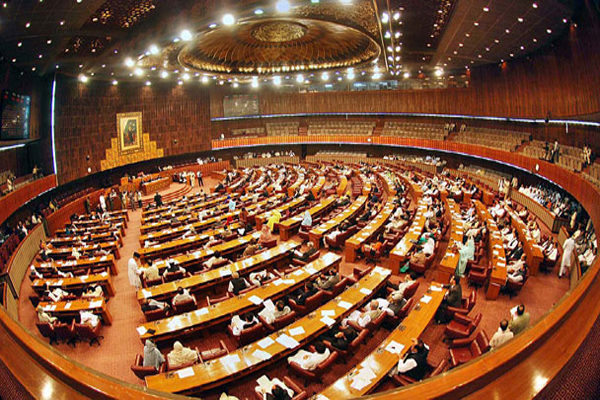Minister of State for Finance and Revenue Bilal Azhar Kayani informed the National Assembly on Thursday that the government has implemented a comprehensive strategy to tackle inflation, restore real wages to 2017 levels, and provide targeted financial relief to low-income citizens.
Responding to a query from Dr Mahreen Razzaq Bhutto, Kayani acknowledged that inflation had significantly diminished the purchasing power of the average Pakistani. “We understand that this is one of the most pressing issues for citizens and a fundamental benchmark for assessing our economic policies,” he said.
According to the written reply submitted to the House, inflation has seen a notable drop from 23.4 percent in FY2024 to 4.5 percent in FY2025. For July FY2026, inflation was recorded at 4.1 percent compared to 11.1 percent during the same month last year.
The government outlined several key fiscal measures in its budget response. These include a 10 percent ad-hoc salary increase for civil servants, a 7 percent pension raise, no imposition of new income taxes, and enhanced subsidies for utility bills and the Benazir Income Support Programme (BISP), which has been expanded to Rs716 billion.
Efforts to enhance labor productivity were also highlighted, focusing on skill development, vocational training, digitization, entrepreneurship, investment in capital goods, and the formalization of the labor market. “Formal firms tend to pay higher and more regular wages,” the government stated, noting that improved employment elasticity tied to GDP growth would further support wage recovery.
In her remarks, Dr Bhutto welcomed the government’s relief efforts but questioned their real-world impact. “Despite these steps, I see no meaningful improvement in real incomes. If the government claims real wages are improving, in which sectors is that visible? Eleven crore Pakistanis still live below the poverty line,” she said. She also criticized the government’s dependence on consumption-based taxes such as fuel levies, arguing these disproportionately burden the poorest segments of society.
Kayani responded by emphasizing that controlling inflation is only one component of a broader economic plan. “Real purchasing power improves when both inflation is contained and employment opportunities expand. With a stable macroeconomic environment, we’ve regained international confidence—rating agencies like Fitch, S&P, and Moody’s have upgraded our outlook,” he said.
He also pointed out that the policy rate has dropped from 22 percent following inflation control, which has helped revive business activity. Kayani noted that one crore families currently benefit from BISP and that individuals earning up to Rs600,000 annually are exempt from income tax, easing the financial strain on low-income households.
Several lawmakers, including Mirza Ikhtiar Baig and Sahibzada Sibqhatullah, raised further questions regarding the government’s strategy for enhancing industrial competitiveness, concerns over utility store layoffs, and the enforcement of minimum wage laws. Mirza Ikhtiar Baig urged the administration to deliver on its commitment to lower electricity tariffs by 8 to 9 cents per unit to support textile exporters and rejuvenate industrial hubs such as Faisalabad.
In reply, Kayani reiterated that while challenges remain, the economy is on a path to recovery. “We are not claiming everything is perfect, but prices are stabilizing, business sentiment is improving, and our policies are targeted toward the most vulnerable,” he stated.
The House was also presented with a chart depicting real wage trends since 2016. Despite nominal increases in pay, it showed that real wages for painters, masons, and laborers have declined due to persistent inflation, underscoring the need for sustained reforms.
Lawmakers further voiced concerns over the lack of regional representation in the selection of development schemes under the Public Sector Development Programme. In response, the government clarified that allocations are made through a standardized framework under the Public Investment Management Act 2019 and are reviewed by standing committees with representation from all political parties.




